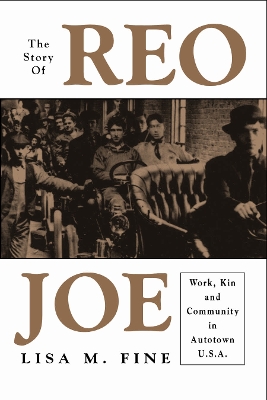Critical Perspectives On The P
1 total work
The Reo Motor Car Company operated in Lansing, Michigan, for seventy years, and encouraged its thousands of workers to think of themselves as part of a factory family. Reo workers, most typically white, rural, native-born Protestant men, were dubbed Reo Joes. These ordinary fellows had ordinary aspirations: job security, decent working conditions, and sufficient pay to support a family. They treasured leisure time for family activities (many sponsored by the company), hunting, and their fraternal organizations. Even after joining a union, Reo Joes remained loyal to the company and proud of the community built around it. Lisa M. Fine tells the Reo story from the workers' perspective on the vast social, economic, and political changes that took place in the first three quarters of the twentieth century. Lisa Fine explores their understanding of the city where they lived, the industry that employed them, and the ideas about work, manhood, race, and family that shaped their identities.
The Story of Reo Joe is, then, a book about historical memory; it challenges us to reconsider what we think we know about corporate welfare, unionization, de-industrialization, and working-class leisure.
The Story of Reo Joe is, then, a book about historical memory; it challenges us to reconsider what we think we know about corporate welfare, unionization, de-industrialization, and working-class leisure.
